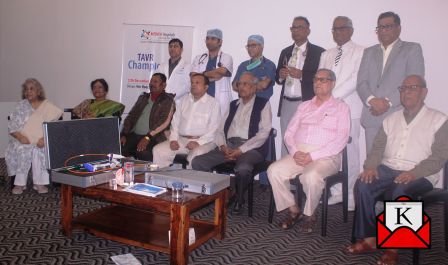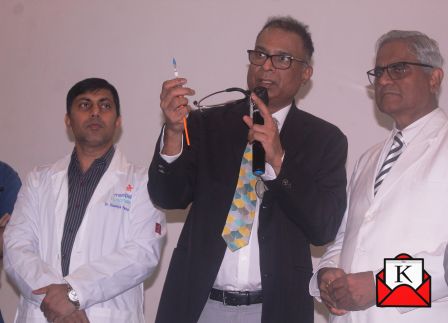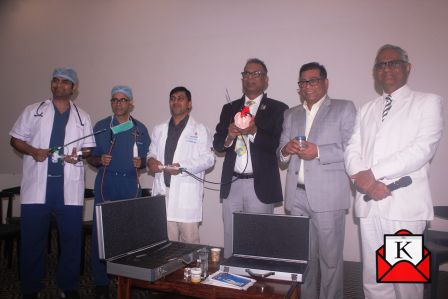TAVR- Ideal For Seniors Not Fit For Open Heart Surgery


To honor and commemorate the patients who had Transcatheter Valve Replacement (TAVR) throughout the last few years, Medica Superspecialty Hospital organized an event. A minimally invasive technique called transcatheter aortic valve replacement (TAVR) uses a cardiac catheter to replace the aortic valve. It is becoming more and more popular because, in contrast to traditional valve replacement surgery, which is carried out by cardiac surgeons under general anesthesia in an operating room, TAVR is carried out by interventional cardiologists in a cath lab using basic heart catheters, negating the need for prolonged ventilation and anesthesia. A growing number of TAVR has been observed in Medica over the past four and a half years.
Nowadays, TAVR operations are well-established, and in 50 countries, over 120,000 patients have had TAVR. Over the past ten years, 5000 surgeries have been carried out in India. Medica Superspecialty Hospital has carried out the most TAVR surgeries in Eastern India.
The event was graced by (Prof.) Dr. Rabin Chakraborty, Senior Vice Chairman & Head of Cardiology, Medica Superspecialty Hospital (a part of Manipal Hospitals), Dr. Dilip Kumar, Director of the Cardiac Cath Lab & Senior Consultant Interventional Cardiologist & Electrophysiologist, Medica Superspecialty Hospital (a part of Manipal Hospitals), Dr. Arindam Pande, Senior Consultant, Department of Cardiology, Medica Superspecialty Hospital (a part of Manipal Hospitals), Dr. Anup Banerjee, Senior Interventional Cardiologist, Medica Superspecialty Hospital (a part of Manipal Hospitals), Dr. Rana Rathor Roy, Senior Consultant Interventional Cardiologist, Medica Superspecialty Hospital(a part of Manipal Hospitals), Dr. Debopriyo Mondal, Consultant, Interventional Cardiologist, Medica SuperspecialtyHoospital(a part of Manipal Hospitals), Dr. P.K. Hazra, Interventional Cardiologist, Manipal Hospital, Dhakuria, Dr. Soumya Patra, Consultant &Incharge- Cardiology, Manipal Hospitals Mukundapur and others.

“TAVR is a unique and intricate process. Nonetheless, such complicated cases can be handled without any issues if our hospital has a skilled cardiac staff. The preferred treatment for heart valve dysfunction will soon be catheter-based valve replacement. Patients with several comorbid diseases and those over the age of 65 are currently candidates for Transcatheter Valve Replacement since they are not medically fit for open heart surgery under prolonged general anesthesia and ventilator” said (Prof.) Dr. Rabin Chakraborty.
In these situations, the anesthesia dosage is lower, and patients can go home a day or two after surgery.
Some patients graced the event and shared their experiences of undergoing TAVR.
Priyanka Dutta
